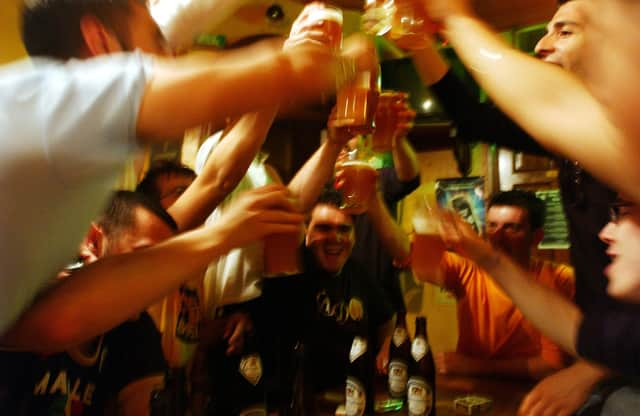Even former UK Government’s drugs tsar David Nutt's herbal alternative to alcohol, Sentia, faces uphill battle against drinks marketing – Stephen Jardine


Last weekend was near enough to Hogmanay for the alcohol still to be lurking in your system but by now it has well and truly evaporated and some bleak weeks lie ahead.
A suggested alternative this year is Try January where you don’t fully abstain but instead simply attempt to cut down drinking alcohol where possible. That sounds like smoking occasionally or only betting on winners, a nice idea but not practical in reality.
Advertisement
Hide AdAdvertisement
Hide AdSo what to do if you want to give your liver a break after the festive season but can’t face a night in the pub on lime and soda or that feeling of denying yourself something you really enjoy? That was the challenge scientist David Nutt set himself and the outcome is a new drink that in time could be a game-changer.
Designed specifically to target the ‘gaba’ receptors which calm and relax the brain, Sentia aims to deliver that nice two-drink feeling of disinhibition rather than the five-drink feeling of needing a deep-fried pizza on the long walk home because no taxi will take you. Crucially, it’s alcohol-free and instead relies on a herbal concoction to achieve the desired neurological effect. So could it catch on?
If you want to make a hangover-free tipple, David Nutt is probably your man. As a professor of neuropsychopharmacology at Imperial College, he was briefly the UK Government’s drugs tsar, until they decided some of his views were too unconventional.
The end of that tenure has left him with time to work on mitigating the most common drug in Britain. Latest figures show UK expenditure on alcohol last year was £27.8 billion or about £900 for every household in the country.
But there is another cost attached to alcohol. In 2021, booze claimed the lives of 1,245 people in Scotland. On top of that, it costs the NHS over £400 million in treatment for a range of associated conditions, including liver disease.
A product that delivers the relaxed feeling we associate with alcohol without any of the health implications could be the holy grail for the drinks industry but it may have some way to go. More investment is currently being ploughed into the research and development of drinks that give the sensation without the booze but that will be dwarfed by the cash already being spent on promoting alcohol in this country.
Just as low and no-alcohol gins have struggled to build share in that crowded market, drinks like Sentia face an uphill battle to lure us away from the psychological attachment we have to a certain brand of local beer or red wine from Tuscany. It’s more than just a physical effect, it’s the craft and the sunshine and the association we have with the good times we’ve enjoyed in the past.
The best hope is probably the future. Research shows at least a quarter of young people now shun alcoholic drinks because of health concerns. With the right marketing, they could be the big target market for products that give the warm fuzzy feeling but without any of the downsides. Until then good luck with staying dry during what feels like the longest month of the year.
Comments
Want to join the conversation? Please or to comment on this article.